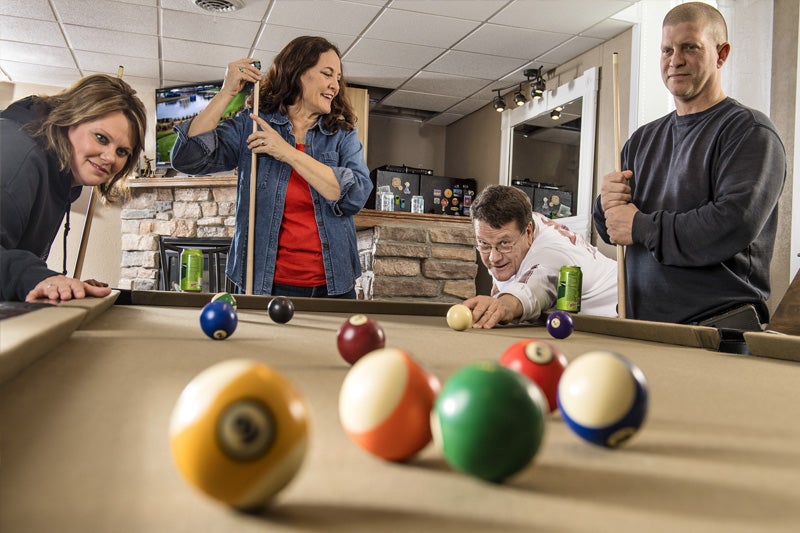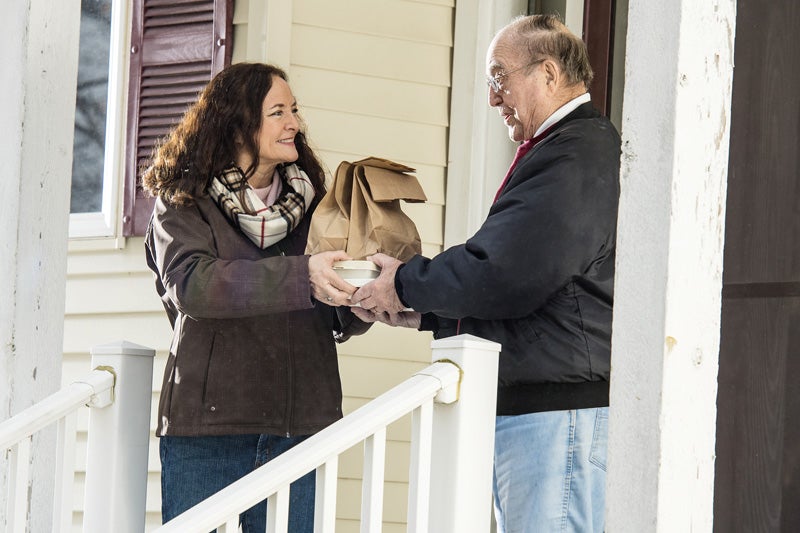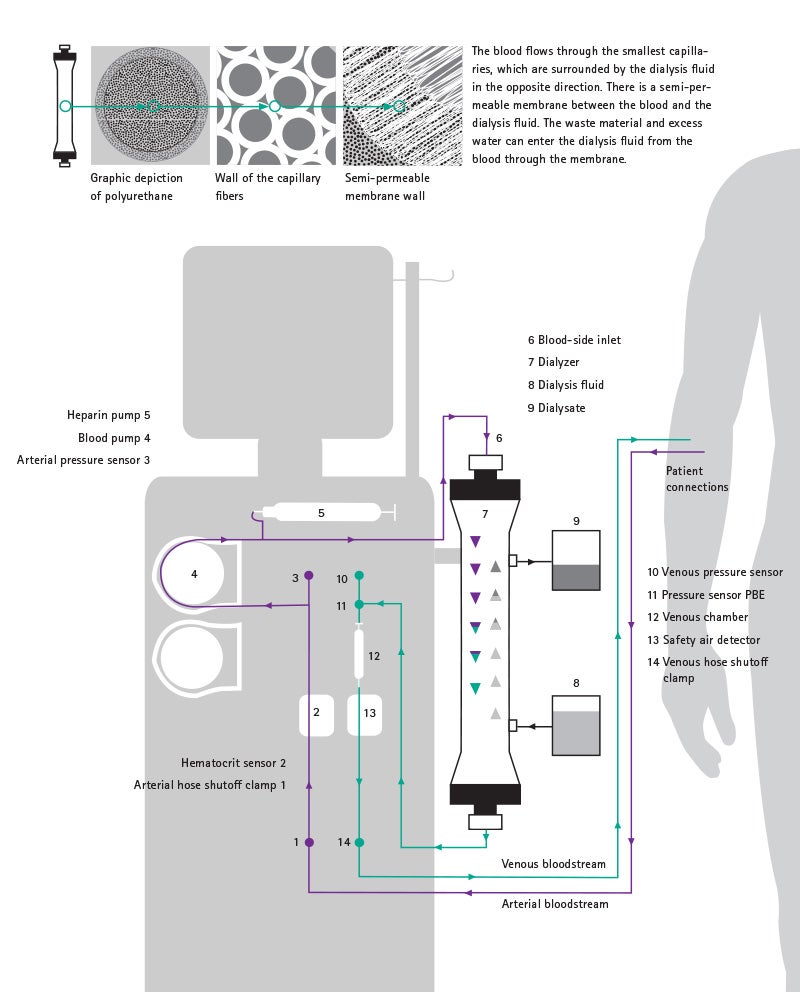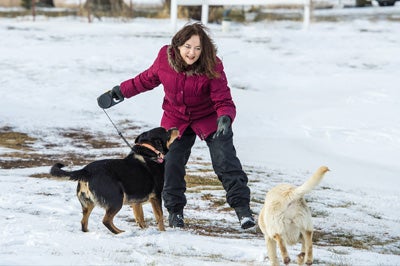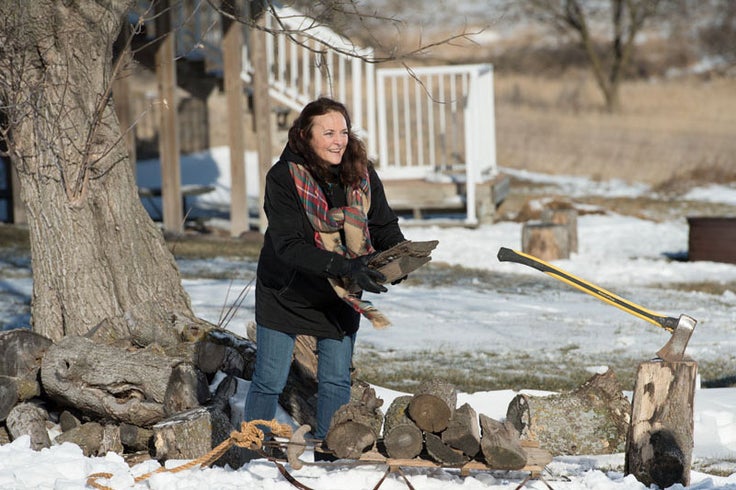My best years: The blessing of growing older
I celebrated my 60th birthday two months before the actual date. My daughter Beth had to be in Exeter at the university in November, so she organized a surprise party for me in September. 90 people came: the family of course, my sisters from California, but also colleagues and friends.
I liked celebrating my 60th birthday early. Maybe I'm an exception when it comes to this, but for me, this date couldn't have come quick enough – even though aging has its downsides, of course. You have to think more about your health, for example. My brother Scott has diabetes that was diagnosed several years ago. He takes medicine and is doing well. We hope he doesn't have any complications. I could possibly develop diabetes, so I limit sugary drinks and try to keep my weight down.
„It's great that dialysis exists. But when you look at Jerry you can see how strenuous the treatments are.“
We have a friend, Jerry Schultz, who has to go to dialysis three times a week. He's actually my husband's former softball coach. We see him often because we volunteer for "Meals on Wheels" and bring him his lunch. It's great that dialysis exists. But when you look at Jerry you can see how strenuous the treatments are. That is also incentive for me to live healthy. We make sure not to eat too much fat, red meat, or salt – and I only drink one cup of coffee per day, even though
I really like the taste of coffee. We cook a lot of vegetables, partly because I have a garden. My husband makes a great salsa from our tomatoes, bell peppers and chilies.
I also grow pumpkins, corn, zucchini, cucumbers, dill, basil and oregano. Another advantage of gardening is that you move around a lot. I also use the treadmill almost every morning, I work with the dumbbells, I walk the dogs, I play golf. But it's our twin grandchildren who keep me on the go the most.
My husband and I watch Drew's twins at least two days a week, from morning to evening. When our own children were small, Tim and I had to work. Now we are both retired and can enjoy the time with our grandchildren much more. You have to teach them a lot, but you can learn a lot from them, too. Joy about the little things, for example: how good an apple tastes, how funny the dog looks when he yawns. I once read that people never feel happier than when they are between 60 and 70 years old. That's true for me. Life is no longer stressful. I no longer have to worry about so many things. I know who I am and what I need; what's important.
Three times per week
Hemodialysis | This diagnosis is a shock for many who receive it. They now know that their kidneys are failing, that this illness has no cure and that it could lead to death without treatment. They know that the therapy will change their everyday routine, but can save their life as a result. Resignation, fear, grief and anger are frequent reactions. It's the responsibility of doctors, staff and medical service providers to accompany patients along the way.
2.6 million patients around the world are currently dependent on regular dialysis
2.6 million patients around the world are currently dependent on regular dialysis1 – this number could be 5.4 million by 2030.2 The rising life expectancy, as well as the growing number of people who suffer from high blood pressure and diabetes contribute to this problem. Both are risk factors for chronic kidney desease. The most frequent form of renal replacement therapy is hemodialysis: the patient is connected to a dialysis machine via vascular access. The blood is pumped through tubes containing a dialyzer which serves as an cleaning filter (see illustration). Patients usually visit a renal care center three times per week for four to five hours for this treatment. As a result, the therapy often dominates their everyday routine. Many of patients have to quit their job. About half of all employed dialysis patients can continue to work at least parttime in their job. Some activities or hobbies may not be possible. Patients must also maintain a strict diet and may only eat low-sodium food, for example.3 Drinking too much can result in water retention. Patients often feel fatigued, lacking in motivation and overwhelmed after dialysis. Many complain of a loss in libido.
Individual care
Particularly because dialysis results in significant physical and mental stress, it is important to have a customized and comprehensive patient care plan. That is exactly what we do in 360 renal care and dialysis centers worldwide; from the first consultation, screening and early diagnosis to the dialysis itself. The goal is to keep restrictions to the patient's everyday routine to a minimum and to enable them to live a full and independent life. Just two examples of this: because B. Braun is represented in more than 30 countries, our patients can travel and receive treatments at their destination with the same quality they are accustomed to. Even dialysis performed at the home of patients, called home dialysis, can serve as an important relief for many patients. We already support home dialysis patients and are expanding this commitment.
Here you will find all sources used for the Annual Report 2017.
